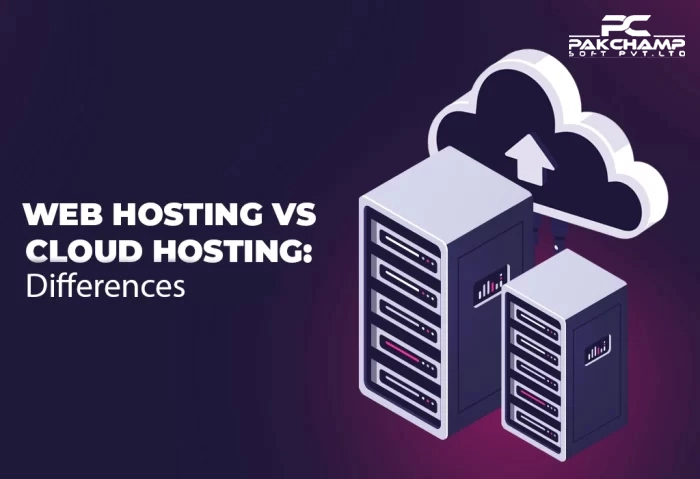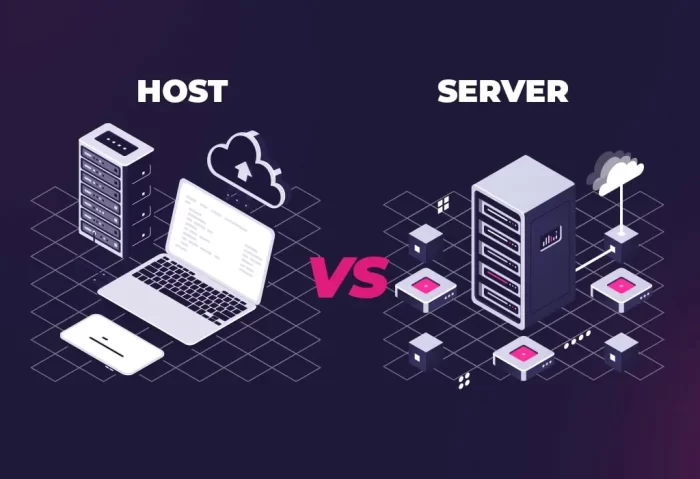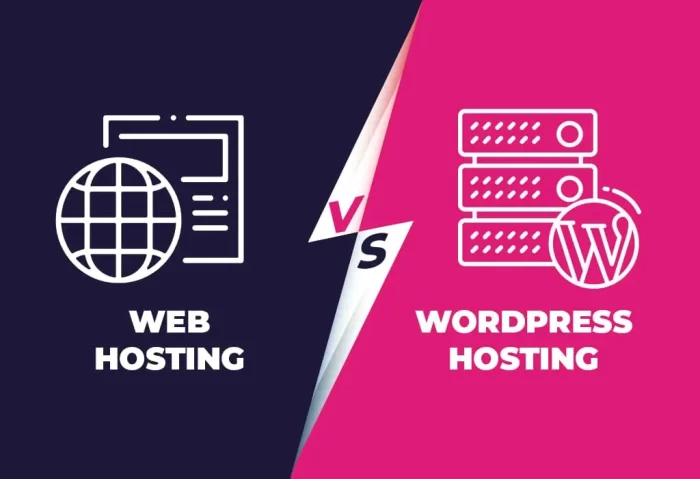We live in a digital era with several hosting options to showcase your business worldwide.
To display Your products or services, you need web hosting to be accessible on the internet.
In this context, you may find multiple hosting plans for your website. Web hosting and cloud hosting are one of them.
These two hosting plans have some differences, and it’s important to understand what each hosting type offers.
Unfortunately, most website owners need clarification about which hosting is best for hosting their website. If you are one of them, don’t panic!
In this blog post, I’ll explain the difference between web hosting and cloud hosting and their features with the explanation. Let’s begin:
[lwptoc depth=”6″ numeration=”none” borderColor=””]
Table of Contents
ToggleWhat is Web Hosting?
Web hosting is a general term used to host websites. Hosting is based on server space, bandwidth, and hosting features to host websites on the Internet. Over the last few years, web hosting has evolved.
To sell products or services, website owners buy web hosting to start their online journey.
What is Cloud Hosting?
Cloud hosting is a type of web hosting based on cloud hosting infrastructure. It makes applications and websites accessible by using cloud resources. Unlike traditional hosting solutions, it’s not deployed on a single server.
It’s the best hosting option for high-traffic websites or those who don’t need downtime.
In cloud hosting, you don’t need to purchase server resources. Your hosting provider is responsible for maintaining them.
As a result, cloud computing is less than half of the cost of a dedicated server.
Difference Between Cloud Hosting and Web Hosting
Cloud hosting and web hosting are both significantly different from each other. Each of them has various features and specifications. In this section, I will compare both of them. Let’s check:
01. Performance

Your website performance depends upon your hosting server. To get performance and high ranking on search engines, you require at least 99% uptime, which is only possible by selecting the right hosting plan. An optimal server improves online performance and sales by offering rocket-fast server speed.
If you are starting your online journey or have low traffic website, shared hosting works quite well. However, cloud hosting is the best option for high-traffic websites to meet hosting needs.
In cloud hosting, you can easily upgrade your hosting when your website traffic increases. In addition, the server environment network reduces the server resources load, so you’ll not experience downtime due to unlimited resources.
And also, you’ll get higher performance & availability than you’ll ever enjoy in traditional web hosting.
02. Reliability
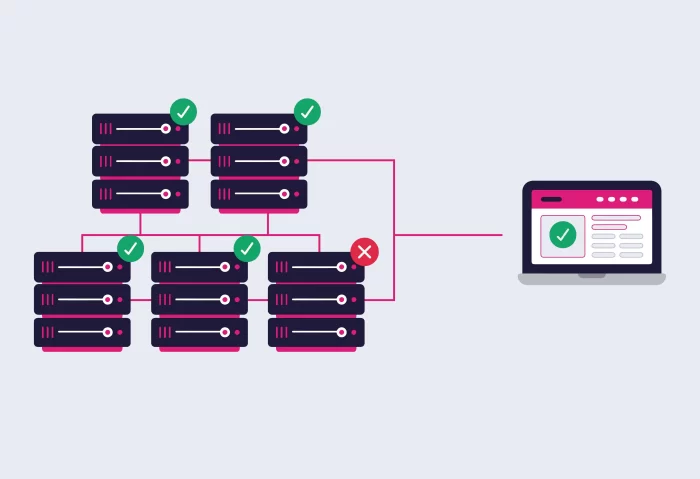
Hosting your website on shared hosting reduces the overall reliability of your server resources because of the shared hosting infrastructure. Conversely, your website data is stored on a server in cloud hosting. Therefore, if one server goes down due to hardware failure, another quickly replaces it.
If you run high-traffic websites and require better reliability, cloud hosting is the best hosting option to maintain uptime and protect your data from loss.
03. Architecture
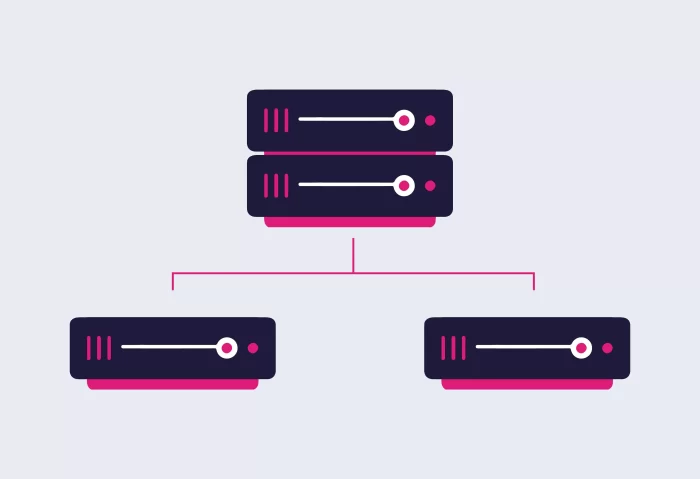
Basic web hosting plans run on shared hosting infrastructure, which is quite challenging for high-traffic websites or companies’ websites.
Due to shared hosting infrastructure, it is limited to the location of the data center.
Therefore, the traditional hosting plan ultimately falls If you want to host the site in a different country.
On the other side, cloud hosting uses multiple servers to host a single website. The architecture is based on a network to expand your business to your required countries at a competitive price.
04. Resources

Web hosting companies constantly evolve their hosting features and services. Due to high competition between national and international web hosting companies, they improve their hosting quality and features too.
Your basic web hosting plan will get automatic backups, free domain registration, free SSL, and much more. This enables novice entrepreneurs to upgrade their hosting plan or resources to meet their digital business needs.
In cloud hosting, you’ll enjoy root access to the cPanel, which assists if disaster recovery is required. And in case of errors, you can switch to another server and continue working without downtime or error.
05. Scalability
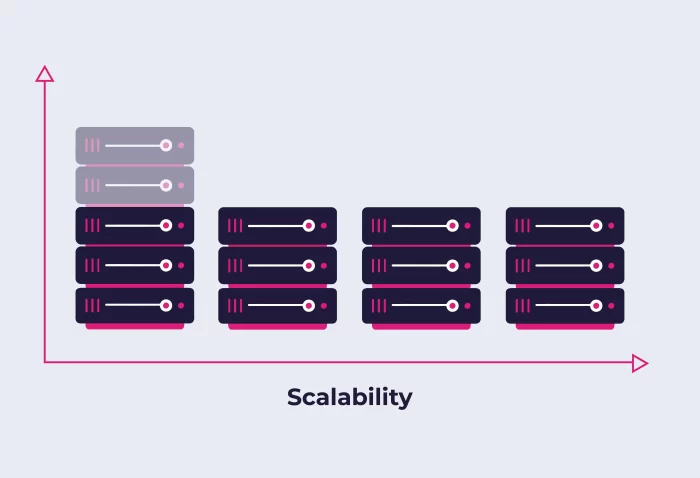
When you start your digital journey, a shared hosting plan is enough for you, but over time, as your website grows, you need to scale your hosting services to meet your website needs.
When you buy cloud hosting, you are hosting your website tension free. In addition, you can restart your web server to scale your servicer resources in cloud hosting.
In cloud hosting, the distribution of server resources is carried out as quickly as possible.
06. Security

Web hosting companies offer reliable and secure hosting environments to facilitate their hosting clients.
They protect against possible hacking attacks and allow their hosting customers to keep their information secure.
To protect your website data the security measures include automatic scanning for viruses, SSL certificates, various plug-ins, and protection against spam and cyber threats. Although the high-reliability cloud hosting is more significant than shared hosting.
07. Cost

All web hosting plans differ based on their hosting features and cost. However, you pay for fixed resources if you purchase traditional web hosting.
In the case of cloud hosting, you only pay for the consumed resources that you use. In this context, cloud hosting is best than traditional hosting options.
08. Control
If you want more control over the server resources, cloud hosting is a highly suitable option. Your website controls the number of instances, scaling factors, etc. You don’t need to share your server resources with other site hosts.
Web hosting or shared hosting plans, you have limited space and power. Shared hosting is the most economical and best option in the initial stages.
However, your web hosting company is responsible for your hosting infrastructure’s management, support, and security. This makes hosting easy for beginners.
On the other side, cloud hosting consists of several synchronized servers, which allows for a balanced load.
How to Select the Best Hosting Option?
If you want to run your website smoothly, you’ll need to know your hosting requirements, website traffic, and budget. Selecting a hosting plan is not a cake, so take this decision seriously.
If you’ve initially started your website, our shared web hosting plan fits the bill for your new site. You will receive a free domain and SSL certificate, regular backup, and 99.99% uptime to run your website smoothly and securely.
We facilitate each level of hosting customers in the best possible web hosting and server hosting plans with extensive hosting deals. So don’t hesitate to get details to buy your dream hosting services to uplift your website position on search engines.
Final Words
And finally, the question is, which hosting is better for you? It depends on your requirements.
If you want to grow fast, cloud hosting is better. On the other hand, web hosting is a good option if you want to grow slowly and steadily.
Look at what different companies offer and compare it to what you need. Then you can easily decide which hosting is best for you.

